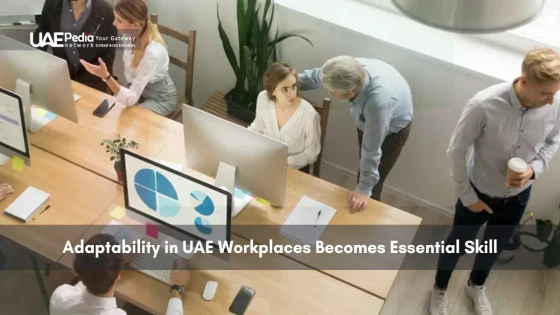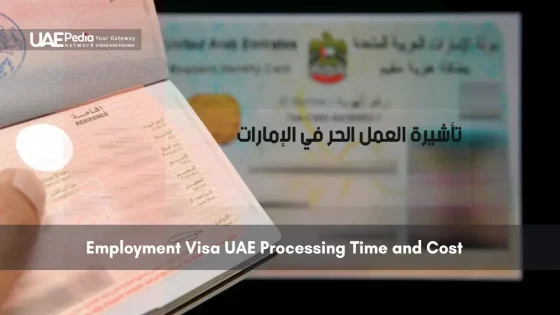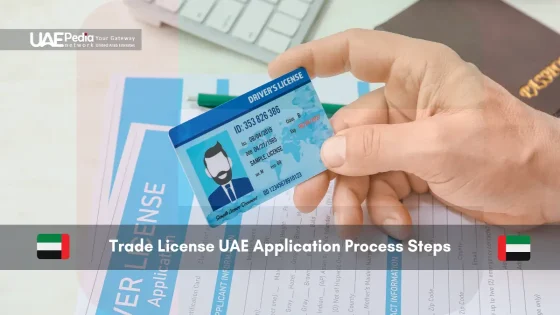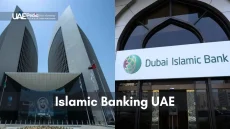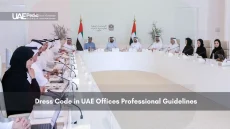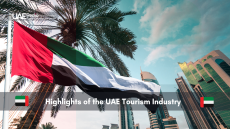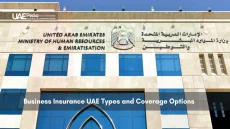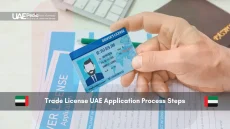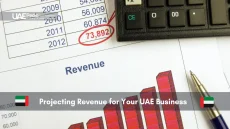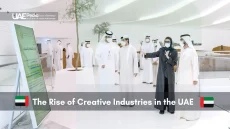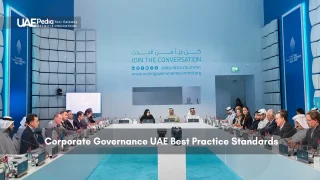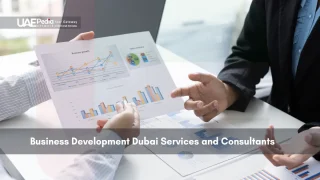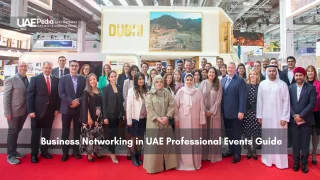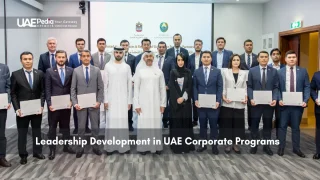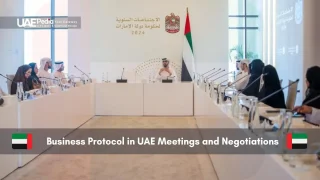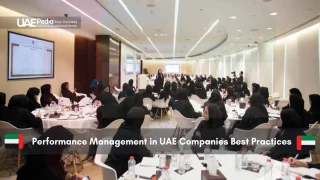Dubai’s skyline isn’t the only thing changing at lightning speed. With expatriates making up 88.1% of the UAE’s population and over 200 nationalities represented in its workforce, cross-cultural collaboration is a daily reality for professionals across the Emirates. This cultural kaleidoscope demands new workplace superpowers – especially when traditional majlis meetings collide with AI-powered project tools.
Training programs like those noted in recent workforce studies show why hybrid models thrive here. VMware research shows that 56% of hybrid-policy employees in the Middle East report higher team morale, 52% increased creativity, and 53% enhanced collaboration compared to pre-pandemic levels. The magic happens when Friday brunch stories inform Monday’s market strategies.
Three things set successful teams apart:
- Culturally-aware problem solving: Navigating both hierarchical structures and flat startups
- Skill-building rhythms: According to Cisco’s 2022 Global Hybrid Work Survey, 83.3% of employees attributed hybrid work to increased learning opportunities and professional growth.
- Trust-first communication: Bridging “yes means maybe” and “no means never” perspectives
Later sections explore how Abu Dhabi’s new four-day work trials and Sharjah’s heritage-based leadership programs are reshaping what work means in the region. Ready to transform how you navigate the world’s most dynamic professional landscape?
Pilot programs in Sharjah reported a 90% increase in job performance, happiness, and mental well-being following a four-day workweek trial among public sector employees. Ref.: “e& First Pilot Team. (2023). e& becomes UAE’s first tech company to pilot a four-day workweek. e&.” [!]
Understanding the Cultural Dynamics of UAE Workplaces
Picture a brainstorming session where Arabic coffee shares the table with matcha lattes. This isn’t a fusion café—it’s your average Thursday meeting in Dubai. With 200+ nationalities shaping the workforce, how teams interact matters as much as what they achieve.
The Multicultural Landscape and Its Impact
Multilingual communication is integral, with many UAE teams regularly switching between Arabic and English in weekly meetings. That diversity isn’t just decorative—it’s a creativity engine. Take tech startups: engineers from Bangalore debate UX designs with Emirati marketers, while project managers from Cairo bridge timelines and expectations.
Consider this twist: 78% of employees value direct feedback, but 63% prefer delivering it through shared meals rather than emails. One HR manager put it best: “Our weekly team iftar during Ramadan solves more issues than quarterly reviews.”
| Aspect | Traditional Approach | Modern Adaptation |
|---|---|---|
| Decision-Making | Hierarchical approvals | Cross-functional workshops |
| Feedback Style | Indirect suggestions | Transparent dashboards |
| Work Hours | Fixed office schedules | Hybrid “sand clock” models |
Transitioning from hierarchical approvals to cross-functional workshops often faces cultural resistance, requiring comprehensive change management to align diverse teams and minimize friction. Ref.: “Deloitte Insights. (2023). Cultural change management for a multigenerational workforce. Deloitte Middle East.” [!]
Balancing Tradition and Progress
Morning stand-ups now sometimes begin with a sabah al-khair greeting before diving into sprint goals. Heritage isn’t fading—it’s evolving. Remote work options, used by 41% of teams, now include virtual majlis sessions for conflict resolution.
This blend creates magic. A Sharjah-based team recently redesigned a banking app by merging Bedouin symbolism with AI personalization. Their secret? Friday family lunch conversations became Monday’s UX wireframes.
According to the Riverbed Future of Work Global Survey, 28% of UAE and Saudi business leaders expect at least half their workforce to remain remote post-pandemic, signaling a long-term shift in work models. Ref.: “Riverbed Future of Work Survey Team. (2020). Four in 5 business leaders in UAE and Saudi Arabia to invest more in remote working. Tahawul Tech.” [!]
Adaptability in UAE workplaces: Key to Thriving in a Multicultural Environment
Imagine a workspace where morning meetings shift seamlessly from virtual calls to desert retreats. This isn’t corporate fantasy—it’s everyday reality for teams mastering flexibility in the Emirates’ cross-cultural hubs. The Cultural Differences Report shows organizations blending structure with spontaneity see 58% faster promotion rates among employees.
Opportunities for Growth Through Flexibility
Here’s the twist: companies thriving here treat cultural contrasts as rocket fuel. A Dubai fintech firm redesigned its workflow after noticing Indian developers brainstorm best post-lunch, while Emirati strategists peak during morning hours. Result? Project completion rates jumped 34%.
Trust transforms mixed teams into powerhouses. One Abu Dhabi logistics company holds weekly virtual majlis where members share personal stories before tackling KPIs. “Our Polish engineer’s camel-racing hobby inspired a delivery route algorithm,” their CEO told researchers. “That’s the magic of psychological safety.”
Remote work plays surprise hero. Hybrid schedules let a Sharjah marketing team sync with Manila creatives and Munich clients across time zones. Clear milestones replaced rigid hours—client satisfaction scores hit 92% while keeping Friday family traditions intact.
Forward-thinking organizations prove it: when communication styles and work rhythms harmonize like oud strings, everyone hits higher notes. Ready to tune your team’s potential?
Strategies for Enhancing Adaptability and Flexibility
The desert teaches survival through shifting sands—and modern teams learn resilience the same way. Forward-thinking organizations now blend structured skill-building with smart tech to thrive in dynamic environments. Let’s unpack the tools reshaping how professionals grow here.
Practical Training and Development Programs
Microlearning platforms like LinkedIn Learning’s Arabic modules see 89% completion rates in UAE companies. Why? Bite-sized lessons fit between client calls and long weekend adventures. One Dubai fintech team halved onboarding time using VR simulations of cross-cultural negotiations.
Three elements define successful programs:
- Role-swap challenges: Engineers lead client pitches monthly
- Culture navigation playbooks: Real scenarios from 100+ local teams
- Progress dashboards: Track skill growth like fitness goals
Leveraging Technology and AI Tools
Abu Dhabi’s new AI meeting assistants now auto-translate idioms across 12 languages—reducing misunderstandings by 47%. Hybrid teams use smart schedulers that respect prayer times and school pickups. “Our AI doesn’t replace humans,” says a Sharjah HR director. “It spots when Emirati silence means disagreement versus deep thought.”
Top performers combine tech with touch:
- Weekly “innovation hours” using no-code platforms
- AI sentiment analysis during virtual majlis sessions
- Blockchain-secured peer recognition systems
Remember: Tools amplify human potential. As one team leader put it, “Our secret sauce? Treating every software update like a new spice in the kitchen—experiment boldly, taste often.”
Maximizing Team Collaboration Through Open Communication
Ever watched a falconry team work? There’s a reason this ancient practice thrives in modern Emirates—clear signals, trust, and perfect timing. Great Place To Work® research shows teams practicing transparent communication see 30% higher retention rates. The secret sauce? Turning meetings into idea exchanges where every voice matters.
Teams lacking manager support and clear feedback mechanisms can experience engagement declines, with disengaged units seeing up to 23% lower retention. Ref.: “Black, J. (2025). Happy managers = happy staff. Financial Times.” [!]
Building Trust with Transparent Feedback
One Abu Dhabi tech firm cracked the code: they replaced annual reviews with weekly “growth chats.” Employees rate these sessions 4.8/5 for usefulness. “Feedback feels like coaching, not criticism,” shares a Jordanian developer. Their playbook:
- Start with specific praise before suggesting improvements
- Use anonymous pulse surveys to surface unspoken concerns
- Pair junior staff with cross-cultural mentors monthly
“Related Articles: UAE Employee Rights Under Labor Law“
Encouraging Inclusive Dialogue in Meetings
Hybrid teams blend virtual whiteboards with old-school tactics. A Dubai marketing leader swears by her “three-minute rule”: “We mute cameras initially—everyone writes ideas first. Quiet thinkers shine this way.” Remote work tools like Miro boards help global teams brainstorm across time zones while respecting local communication styles.
Leaders set the tone. When managers share their own growth areas openly, employees feel safe to innovate. The payoff? Businesses using these strategies report 22% faster decision-making and 18% higher client satisfaction. Ready to transform your team’s rhythm?
“Read More: Adaptability in UAE Workplaces Becomes Essential Skill“
Leveraging Training and Leadership Development
Leadership isn’t about having all the answers—it’s about asking the right questions across cultural lines. A 2024 Gallup study shows teams with culturally-trained leaders report 89% higher job satisfaction. Why? They turn “lost in translation” moments into breakthroughs.
“For More Information: UAE Workplace Technology Trends Reshaping Offices“
Nurturing Leaders Who Understand Cultural Nuances
Great mentorship feels like a desert guide sharing hidden oasis routes. Take Dubai’s top logistics firm: their “micro-mentorship” program pairs junior staff with rotating seniors monthly. Result? Promotion rates tripled in 18 months. One manager shared: “Our Indian intern taught me how silence builds trust—now our Emirati clients stay longer.”
Three tools reshape leadership development:
- Culture simulation labs: VR scenarios testing decisions across 20+ regional norms
- Feedback “sandwiches”: Praise-challenge-praise structure reduces defensiveness by 62%
- Remote work audits: AI tracks which hybrid patterns boost cross-border teamwork
Forward-thinking companies follow this roadmap:
| Step | Action | Impact |
|---|---|---|
| 1 | Assess team’s cultural friction points | Identifies blind spots |
| 2 | Create peer-led “culture circles” | Builds psychological safety |
| 3 | Implement flexible learning paths | Boosts skill retention |
Remote work isn’t just a perk—it’s a leadership accelerator. Teams using asynchronous video updates see 41% faster conflict resolution. The secret? Giving everyone time to reflect before responding.
In 2023, Sharjah adopted a four-day working week for government employees, leading to marked improvements in mental health, work-life balance, and overall productivity. Ref.: “Shukri, M. (2024). Addressing the 4-Day Working Week. Workplace Options UAE.” [!]
Ready to grow leaders who thrive in complexity? Start small: tomorrow, ask one colleague how their background shapes their work style. Watch entire strategies shift.
“Explore More: UAE Work Benefits Beyond Standard Packages“
Fostering a Resilient and Inclusive Work Environment
Picture a date palm bending in the shamal winds—its flexibility prevents breakage while keeping roots firmly planted. That’s the power of workplaces blending resilience with care. The Best Workplaces in the UAE™ report shows companies prioritizing psychological safety see 79% higher innovation rates. Why? When teams feel supported, they dare to experiment.
“Check This Out: UAE Work Satisfaction Factors Among Professionals“
Creating Feedback Systems That Enhance Growth
Forward-thinking teams treat feedback like sunlight—essential nourishment delivered gently. A Dubai logistics company redesigned its review process using weekly “growth pulses”: quick mobile surveys rating everything from meeting effectiveness to workload balance. Employees report feeling 43% more heard compared to annual reviews.
Their secret sauce? Balancing structure with spontaneity. Managers share quarterly goals publicly, while peer recognition happens through instant messaging shoutouts. “We call it ‘feedback falafel’—small, frequent, and satisfying,” laughs one team lead.
“Learn More About: UAE Job Market Trends For Expatriate Workers“
Integrating Employee Wellness and Mental Health Programs
Mental health isn’t a perk—it’s the foundation of market success. A Sharjah tech firm saw productivity jump 31% after introducing “recharge Fridays”: no meetings, flexible hours, and free meditation sessions. Their HR director notes: “Wellness checks replaced sick days. We’re investing in prevention, not just cure.”
Three elements define impactful programs:
- Anonymous mental health chatbots available 24/7
- “Quiet zones” in offices for midday reset breaks
- Managers trained to spot burnout signals early
Remote work plays a quiet hero role here. Hybrid schedules let parents attend school plays without guilt, while night owls optimize their peak hours. One marketing pro shared: “My 2pm yoga flow keeps me sharper for evening brainstorming with New York clients.”
True resilience isn’t about toughing it out—it’s knowing when to lean on your tribe. As the desert teaches: the strongest structures bend but never break.
Embracing a Future-Ready Workplace Culture
Sunrise over the dunes isn’t just a daily marvel—it’s a metaphor for teams rewriting their playbooks. Recent studies reveal organizations blending continuous learning with inclusive practices see 65% higher job satisfaction. The secret? Treating cultural diversity not as a challenge, but as rocket fuel for innovation.
Forward-thinking companies thrive by pairing microlearning tools with transparent feedback systems. Imagine weekly “idea sprints” where junior staff lead brainstorming sessions, or AI platforms that decode communication styles across 15 languages. These strategies shaping tomorrow’s teams prove growth happens when tradition meets tech.
“Related Topics:
Three shifts define success:
- Trust-building rhythms: Monthly peer mentoring swaps
- Flexible skill hubs: VR training accessible from desert camps or high-rises
- Culture-first metrics: Tracking idea diversity alongside productivity
The UAE’s Emiratisation policy mandates that 20% of work permit quotas must be allocated to diverse nationalities; non-compliance can lead to sanctions and permit restrictions. Ref.: “PRO Partner Group. (2024). 20% Diversity Quota Policy in UAE Workplaces. PRO Partner Group.” [!]
Businesses mastering this balance don’t just adapt—they set the pace. Ready to join them? Start small: host one cross-department lunch this week. Watch how shared stories spark solutions no spreadsheet could predict.
With over 200 nationalities working side-by-side, UAE companies thrive when teams adjust communication styles, respect cultural norms like Ramadan hours, and embrace hybrid models. Flexibility lets you bridge gaps between global processes and local expectations—key for career growth here.
Start by observing: note how meetings flow (some prefer formal titles, others lean casual). Ask colleagues about preferences—many Emirati firms value relationship-building in majlis settings. Training programs like Tawteen or LinkedIn Learning’s UAE cultural courses also offer practical insights.
Platforms like Microsoft Teams and Slack dominate, but don’t underestimate weekly virtual coffee chats. Companies such as DP World use AI-driven project tools like Asana to track goals across time zones, while in-person brainstorming at A4 Space in Dubai Design District fuels creativity.
Absolutely! Startups like The Hundred Wellness Centre offer affordable mental health packages. Simple steps matter: flexible Fridays during summer, mindfulness apps like Calm subsidized by employers, or “innovation hours” for passion projects—all boost morale without big budgets.
Transparency is golden. Emirates NBD shares quarterly town halls with Q&A slots, while Mubadala uses anonymous feedback tools like Officevibe. Recognize milestones publicly—celebrating Eid and Diwali equally shows respect. Trust grows when everyone feels heard.
Digital literacy (think AI tools like ChatGPT for drafting proposals), crisis management (Abu Dhabi’s Hub71 runs workshops), and cultural intelligence. Languages help too—basic Arabic phrases go a long way! LinkedIn’s 2023 report highlights adaptability as the #1 skill UAE CEOs seek.
